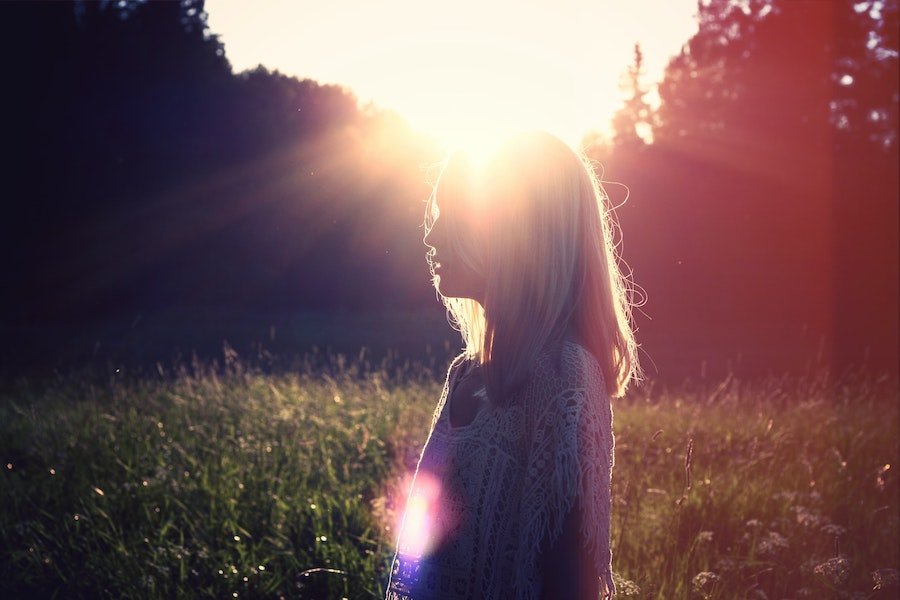
It took me many years to discover that there is a quiet strength in being a sensitive person, though it’s not always recognised or celebrated, and many of us believe we need to learn how to be less sensitive, which I believe is a mistake.
In a world that often rewards resilience, courage and strength, being sensitive can sometimes feel like a burden. But as anyone who has truly leaned into their sensitivity knows, it’s also a profound gift.
What does it mean to be a sensitive person?
The idea of sensitivity as a temperament trait was brought into public awareness by psychologist Dr Elaine Aron, whose ground-breaking research in the 1990s identified what she termed the Highly Sensitive Person (HSP). According to her research, around 20-30% of the population fall into this category. Her work confirmed that high sensitivity is not a disorder, weakness, or something that needs to be “fixed”. It’s an innate trait and one with strong evolutionary roots.
It fascinated me to learn that sensitivity is not unique to humans. Aron and her colleagues found that the trait appears in over 100 species, from birds and fish to dogs and primates. In evolutionary terms, highly sensitive individuals in a group play an important role. While others rush into new situations, the sensitive ones pause, observe, and assess the risks. They are more attuned to subtleties in the environment, more responsive to emotional cues, and often more conscientious. In essence, they help the group survive by being the cautious, reflective ones.
Sensitivity is not the same as introversion
One of the common misconceptions about sensitive people is that all of us are introverts. While it’s true that many highly sensitive people do identify as introverts, Elaine Aron’s research found that around 30% of HSPs are extroverts. The key difference lies in how sensitive individuals process information and stimuli. They may love social connection and stimulation, but their nervous systems are more finely tuned, which means they can become overwhelmed more quickly.
Whether introverted or extroverted, sensitive people are deeply affected by their environment. They might notice the change in someone’s tone of voice or the energy in a room. They may cry more easily at beauty, at sadness, at kindness. They may be deeply moved by music or art, and they may need more time to recover from busy, loud, or intense experiences. They tend to be reflective, empathetic, and aware of other people’s feelings – sometimes even before others are aware of them themselves.
Signs you might be a sensitive person
If you’re unsure whether this applies to you, here are some common signs of high sensitivity:
- You become overwhelmed or overstimulated in environments where there are bright lights, loud noises, strong smells or any kind of chaos.
- You’re deeply moved by music, nature, or art.
- You notice subtleties in your environment that others miss (a slight change in someone’s mood, a faint smell, or the tone in a conversation).
- You need more downtime than most people to recover after socialising or being in busy places.
- You often feel things intensely – whether that’s joy, sorrow, anxiety, or gratitude.
- You’re highly empathetic, often feeling other people’s pain as if it were your own.
- You avoid violent films or disturbing news stories because they affect you deeply.
- You think deeply and reflect often, sometimes replaying conversations in your head for days.
If several of these resonate, you may well be a highly sensitive person but you can also take Elaine Aron’s free test here. It’s important to know that you’re not alone, and there’s nothing at all wrong with you. In fact, this way of being comes with tremendous gifts.
The strengths of being a highly sensitive person
It’s easy to focus on the challenges of sensitivity – feeling overwhelmed, burning out, absorbing others’ emotions – but it’s equally important to recognise the strengths.
Sensitive people are often deeply intuitive and perceptive. They can sense what’s not being said. They are typically thoughtful, considerate, and compassionate friends and partners. They tend to be conscientious, reliable, and careful in their decision-making. Many are highly creative, able to see connections that others miss, allowing them to bring a richness to their work and art. In a team or a family, they’re often the ones who sense when something’s not quite right and gently steer things back on course.
Sensitive people can help us slow down and pay more attention. They notice beauty. They create meaning. And they often bring enormous depth and emotional intelligence to their relationships and communities.
Navigating the challenges of being highly sensitive
Even acknowledging these gifts, there’s no denying that being sensitive in an insensitive world can be difficult at times. It’s easy to feel like you’re “too much” or “too emotional”. But managing sensitivity isn’t about trying to change who you are – it’s about honouring your needs and creating a life that supports your nervous system.
Here are some strategies that many sensitive people find helpful:
Honour your need for downtime
Sensory and emotional overstimulation can lead to fatigue or even burnout. Create space in your day for quiet. Whether it’s a short walk, a cup of tea in silence, or time to read or reflect – don’t feel guilty for needing rest.
Set boundaries lovingly
Being sensitive often means being deeply attuned to others’ needs, but it’s equally important to protect your own energy. Learn to say no without feeling guilty. And remember to fill your own cup first.
Create a soothing environment
Your surroundings matter. Pay attention to lighting, noise, and clutter. Soft textures, natural light, calming scents, and music can all help regulate your nervous system.
Limit your exposure to distressing content (or any content really)
The news, social media, or violent films can have a stronger impact on sensitive people. Choose your inputs mindfully.
Practise grounding and self-regulation techniques
Practices like mindfulness, breathwork, journalling, or even simply walking in nature can help bring balance when emotions feel intense. With the right tools, you can remain grounded even amidst big feelings.
Seek out supportive relationships
Surround yourself with people who understand your sensitivity rather than dismiss or criticise it. These people will value your insights, your care, and your emotional depth.
As Dr Elaine Aron writes, “The world could do with a little more sensitivity.”
We need people who can listen deeply, act with empathy, and create more moments of beauty.

